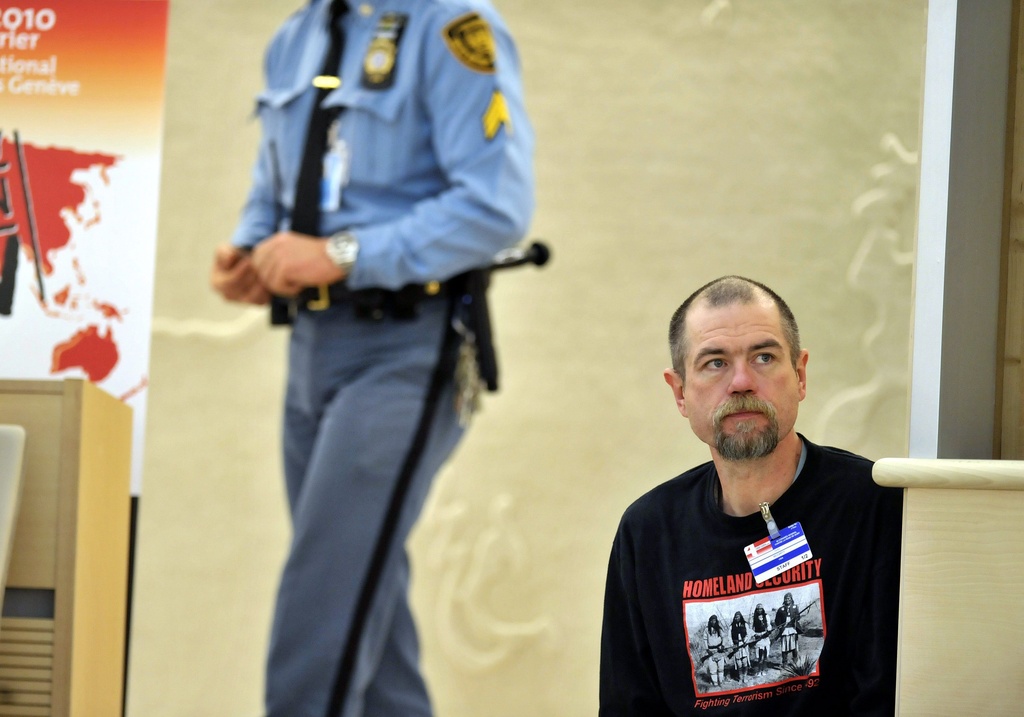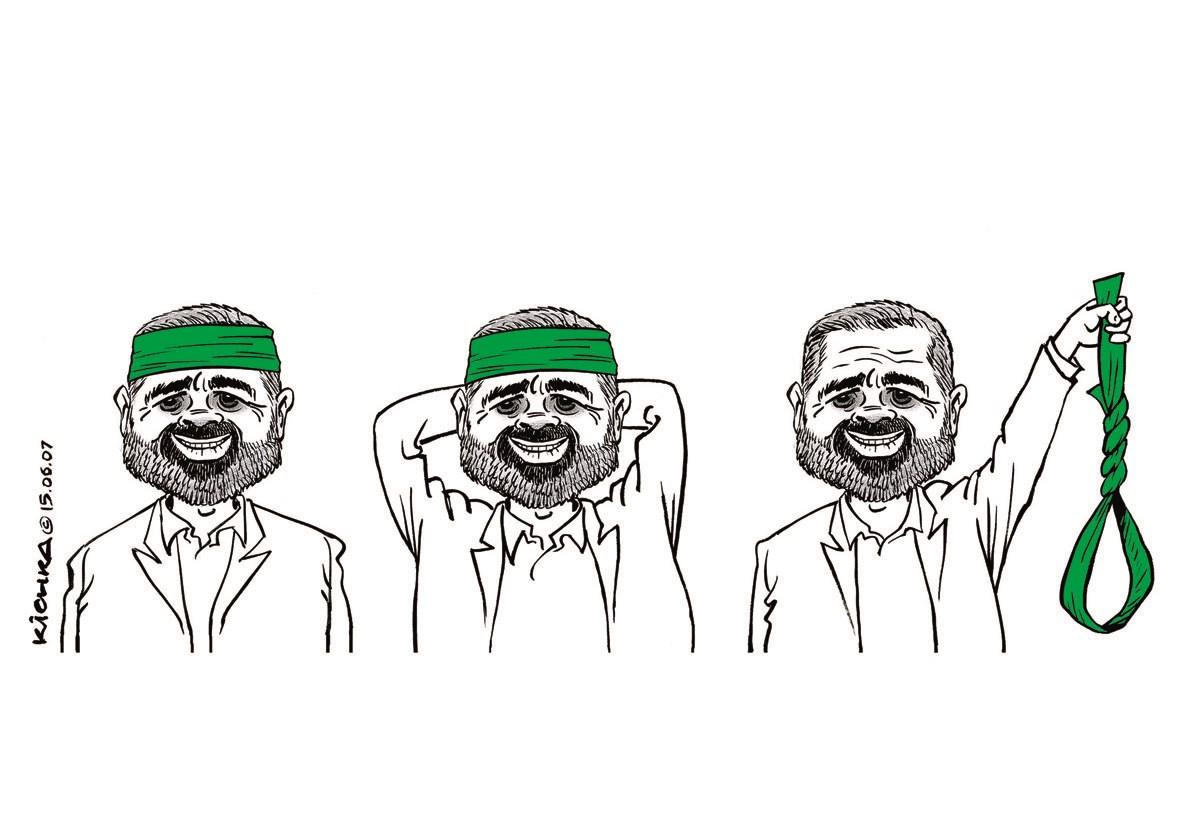Initiative hopes to revive death penalty

Campaigners have been given the go-ahead to collect signatures for a people’s initiative to restore capital punishment for murders involving sexual violence.
The Federal Chancellery said on Tuesday the initiative met formal legal requirements. Its supporters now have until February 24, 2012 to collect the 100,000 signatures needed to force a nationwide vote on the issue.
Switzerland outlawed the civil death penalty in the 1940s, and observers are sceptical whether the initiative, brought by a group of individuals, will gain enough support. It also raises a number of legal questions.
It is open to question whether the death penalty would be constitutionally legal and in line with Switzerland’s international obligations. Parliament will have the final say should sufficient signatures be collected.
The document calls for the Swiss Constitution to be modified to reintroduce the death penalty for people who commit murder “in combination with an act of a sexual nature against a child, sexual violence or rape”.
The committee behind it says the death penalty is a “fair and logical” punishment. Reinstating it would bring dignity to the victims and help those left behind, it argues.
According to committee spokesman Marcel Graf, the group is non-political, but are relatives of a victim.
Switzerland struck capital punishment from its criminal statutes in 1942. It was allowed under military law officially until as late as 1992, but the last military execution took place in 1944.
Only Belarus
The news of the Federal Chancellery’s approval of the initiative text prompted much debate. Daniel Graf, from the human rights organisation Amnesty International Switzerland, said the initiative gave rise to a very special situation.
“There’s a clear international trend to stop executions worldwide and for us it’s not usual to argue against the death penalty in Switzerland,” he told swissinfo.ch. “In Europe, the last country who allows execution is Belarus.”
He believes that the initiative does not have much of a chance. “There is a wide consensus, including all the political parties in Switzerland, that the state is not allowed to kill,” he said.
“And even more, that it has to respect and protect the basic human rights, which is also written clearly in the constitution of Switzerland – which also states there is no death penalty.”
Indeed, there was a storm of criticism when news of the initiative first broke last week and on Tuesday the parliamentary group for human rights rejected it resoundingly.
Previous attempts to reinstate capital punishment, such as in 1985 for drug dealers, have failed for lack of signatures.
Thorny legal questions
For legal experts it is not clear how parliament should deal with such an initiative. It has to consider international law as well as the Swiss constitution. But there is a problem.
“The concept of jus cogens which is at the centre here – of the peremptory norms of international law as the constitution refers to them – is quite a vague concept,” Markus Schefer, a professor of public law at Basel University, told swissinfo.ch.
The death penalty itself does not violate peremptory norms – for example the United States or Japan still have it. So from this perspective parliament might not be able to declare the initiative void. But for Europe it might been seen differently.
“It has been argued many times that the prohibition of the death penalty is regional jus cogens in Europe. If parliament accepts this idea it should declare the initiative void,” Schefer said.
Switzerland has, for example, signed up to the European Convention on Human Rights which outlaws the death penalty.
Human rights
Andreas Auer, professor of constitutional law at Zurich University, points to problems likely to arise should the initiative be accepted at the ballot box.
“I can see a quite similar situation like the one we are experiencing now with the anti-minaret initiative [voted in last year against the building of minarets] which probably cannot be applied because it violates internationally guaranteed human rights that Switzerland cannot depart from,” he told swissinfo.ch.
Many in the Swiss legal world argue that the content of people’s initiatives should be subject to better checks. Some, like Schefer, would like the checking to happen at the beginning of the process. Others, Auer included, say it should remain at the end.
Both professors agree that the matter should be decided in court rather than parliament.
It seems that the death penalty issue will not quite go away. Only recently a Swiss rockstar, Gölä, voiced his support for it.
“This prohibition of the death penalty is not very old, we don’t have a 200-year-old tradition, and there seem to be some ideas around that want to resort to this instrument,” Schefer said.
Isobel Leybold-Johnson, swissinfo.ch
The committee behind a people’s initiative to restore capital punishment for murders involving sexual violence have withdrawn the initiative, it emerged on August 25.
On their website, the group behind the move said that the initiative was the only way for them to make the population aware of problems in the justice system.
The group, made up of private individuals related to a victim, said that the initiative had been a way of airing their grievances, particularly concerning what they alleged was a bias towards perpetrators in the Swiss justice system. They also called on politicians to intervene.
The initiative had not only caused shockwaves in Switzerland, but had also been widely reported on abroad.
Switzerland struck capital punishment from its criminal statutes in 1942. The last civil execution took place in 1940. A Zurich man was executed for a triple murder.
It was allowed under military law until 1992, for example, for murder or treason in times of war. In the Second World War, 17 executions by shooting took place, with the last military execution in 1944.
An attempt in 1985 to reinstate capital punishment for drug dealers failed as it did not gather enough signatures.
Two-thirds of United Nations member states have already abolished, or are in the process of abolishing, capital punishment.
Another 25 countries continued executions in 2009; of these, 95 per cent took place in China, Iran, the United States, Saudi Arabia and Pakistan.
According to Amnesty International, at least 2,390 executions were carried out in 2008 in 25 countries. But the actual number is believed to be much higher.
China announced this week that it is considering dropping capital punishment for economic crimes. International rights groups have criticised China for its heavy use of the death penalty, saying it is excessive.

In compliance with the JTI standards
More: SWI swissinfo.ch certified by the Journalism Trust Initiative







You can find an overview of ongoing debates with our journalists here. Please join us!
If you want to start a conversation about a topic raised in this article or want to report factual errors, email us at english@swissinfo.ch.